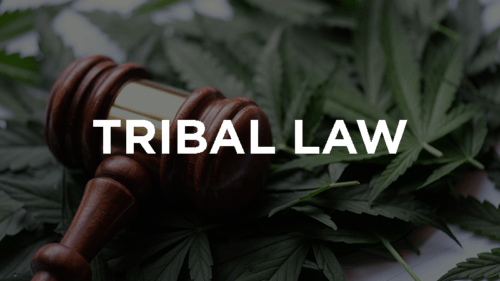More federally recognized Native American Tribes are joining the cannabis industry. Learn about Tribal cannabis law, specifically how federal and Tribal laws interact and apply to the legal cannabis business, through the experts at Oaksterdam University. In this video, Keith Justin Anderson, founding partner of AIM Law and the nation’s leading Tribal cannabis expert, answers the critical question, “Does federal law apply on Tribal land?” and provides a thorough overview of cannabis in Indian Country.
Introduction to Tribal Cannabis Law
The United States and Tribal nations have a unique government-to-government relationship. Tribes possess inherent sovereignty, which is the right to self-governance and the authority to govern their own affairs, including the ability to enact laws and regulations that apply within their territories. The interplay of federal, state, and Tribal cannabis laws is determined by this unique relationship, which predates the existence of the United States and was recognized by European powers through treaties and diplomatic relations. Many Tribes have legalized and regulated cannabis for adult and medicinal use as federal and state policies have shifted. This lesson covers Tribal governance structure, the interaction with federal laws, and how this shapes and impacts Tribal cannabis laws.
Since its inception, the United States has entered into treaties with Tribes to address various issues. Federal law, including these treaties, establishes the framework within which Tribal governments operate. The US has a “trust responsibility” to Tribes stemming from these historical legal obligations. The Bureau of Indian Affairs (BIA) defines this trust responsibility as “a legally enforceable fiduciary obligation on the part of the United States to protect Tribal treaty rights, lands, assets, and resources, as well as a duty to carry out the mandates of federal law with respect to American Indian and Alaska Native tribes and villages.”
This trust responsibility includes ensuring the protection of Tribal lands and resources, funding essential services such as healthcare and education, and consulting with tribes on matters that affect their interests. The federal government is also tasked with protecting tribal self-government and resources held in trust for Tribes, including reservations set aside by the federal government for their exclusive use and benefit. Reservations serve as tribal homelands where Tribes exercise sovereignty, preserve cultural heritage, and administer Tribal affairs.
